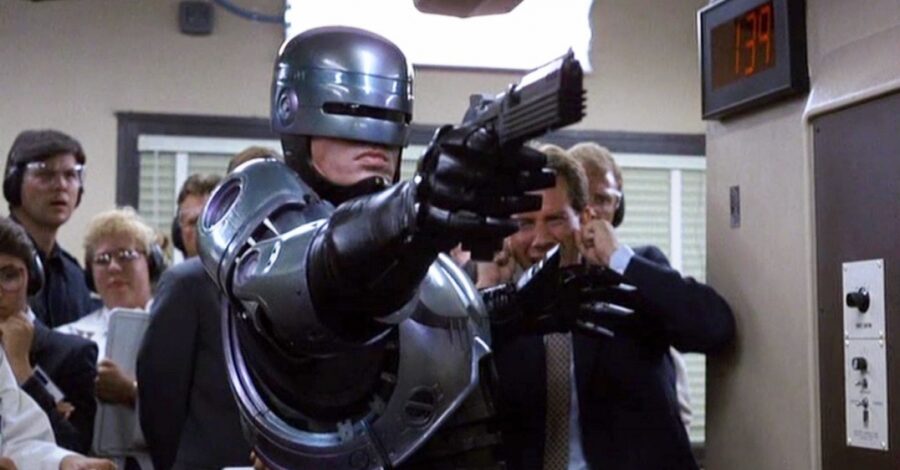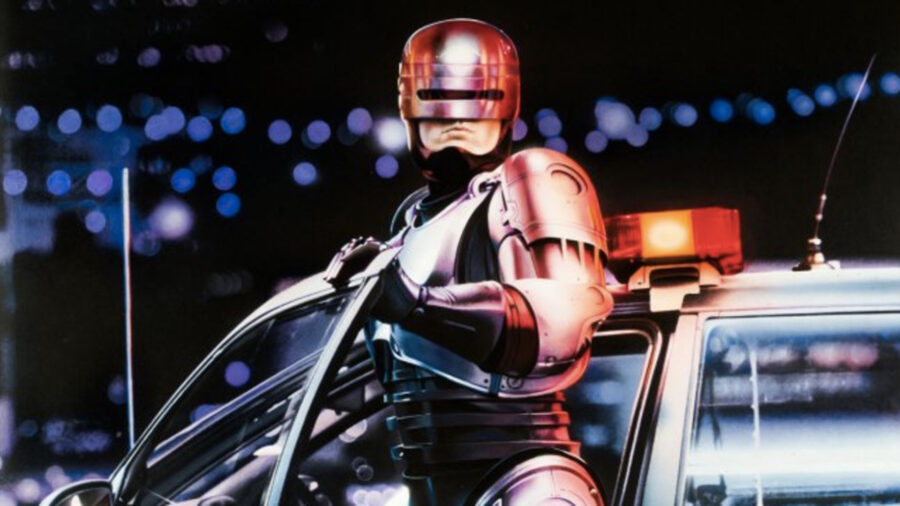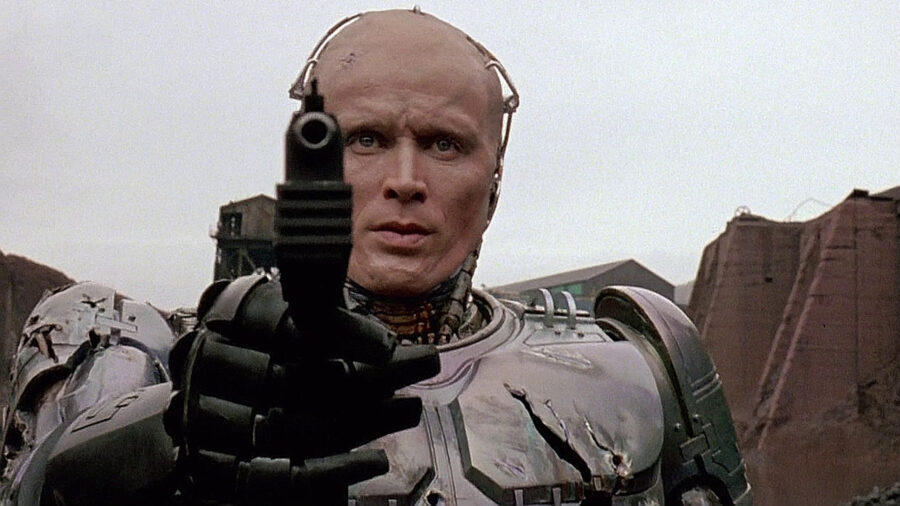The Best Sci-Fi Movie Of The ’80s Is Still A Knockout

RoboCop, currently streaming on MGM+, is certainly one of the greatest sci-fi movies of the ’80s and is worth a repeat viewing decades later. The original 1987 film spawned two sequels, a remake, two live action television series, two animated television series, and several video games.
There has even been talk in recent years of a new film focusing on the cyborg law enforcement officer, though news on that front has not been forthcoming in some time.
RoboCop, released in 1987, is currently streaming on MGM
The original RoboCop tells the story of Alex Murphy, a Detroit police officer in 2029 who is brutally murdered by a gang of heavily armed thugs, only to be used as the basis of a new half-robot, half-man, crime-fighting cyborg. The police force having been taken over by a giant corporation, the RoboCop initiative is part of a push for greater automation and heavier artillery in combating the crime running rampant in the city.

The film’s vision of a drug-fueled, corporate-controlled, weapons-rich, and heavily violent society has long been a cautionary image of the future that nonetheless reflects the societal ills of the 1980s, many of which are still with us today.
Written by Edward Neumeier and Michael Miner, RoboCop was initially conceived by Neumeier while he was working on the set of Blade Runner. He later developed the idea further with Miner and the two worked together to write the screenplay. In 1985, John Davison of Orion Pictures bought the script and the studio began shopping it to directors, though the initially ridiculous-sounding promise was difficult to sell.
Director Paul Verhoeven passed on RoboCop twice before his wife convinced him that the film was rooted in satire and social commentary.
Director Paul Verhoeven passed on RoboCop twice before his wife convinced him that the film was rooted in satire and social commentary. The film was shot primarily in Dallas, Texas, from August to October of 1986 and featured practical effects by Rob Bottin, including the RoboCop suit and the many explosives and makeup effects required for the film’s violence and gory details.
The violence in the film was intended by Verhoeven to be exaggerated to the point of becoming comical, but film review boards still deemed too extreme and ordered seems to be shortened so that the film could receive an acceptable rating.

RoboCop has often been called one of the best films of the 1980s and one of the greatest science fiction films ever made, with reviewers long since ceasing to hold the intensity of the film’s violence against it. A commentary on corporate greed and the economic policies of the Reagan era, the original movie also discusses themes of personhood and identity.
The popularity of the RoboCop character has continued to persist, making him one of the most recognizable pop culture icons of the 1980s.
A number of actors were considered to play the RoboCop character, including Arnold Schwarzenegger
A number of actors were considered to play the RoboCop character, including Arnold Schwarzenegger, who had been Orion’s favored choice for the role following his success in The Terminator. However, Schwarzenegger was ultimately considered too physically imposing and it would have seemed rather repetitive for him to play yet another robotic character leading a violent action film.
Many actors were also reluctant to take on the role because it would require their face to be covered by the character’s helmet for the majority of the film.
Other actors considered for the role of Robocop included Michael Ironside, Rutger Hauer, Tom Berenger, and Keith Carradine, along with many others. But Verhoeven finally found his star in Peter Weller, who had gained prominence in the science fiction community in 1984 with Buckaroo Banzai Across the 8th Dimension.

Verhoeven said he cast Weller because he had the right chin, though this was probably a comment made somewhat in jest as the actor brought much more to the role than the lower portion of his face.
The challenge of playing RoboCop was not just imbuing a robotic character with a developing humanity, but coming up with ways for the character to move that would be believably mechanistic throughout the film.
Weller developed the character’s style of movement over the course of several months, working with mime Moni Yakim to formulate methods of smooth yet halting movement that would accentuate the character’s robotic nature. He trained in a football uniform to approximate the encumbrance of the suit he would wear in the film.
Weller chose to do RoboCop instead of starring in King Kong Lives, he said, for the chance to work with Verhoeven, whose film Turkish Delight was nominated for an Academy Award for Best Foreign Film in 1973.
Having had a successful career in his own country, the Dutch filmmaker would go on to build an impressive filmography in the United States after RoboCop, directing such films as Total Recall, Starship Troopers, Basic Instinct, and Hollow Man.
Both Verhoeven and Weller proved to be perfect choices for the film, and their collaboration in creating the on-screen version of the RoboCop character established the look and tone that would define the character and the franchise for decades to come.
You can stream RoboCop on MGM+ right now.












